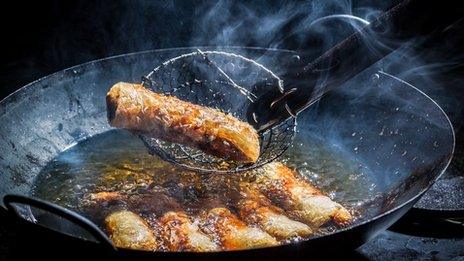Orangutan numbers stable but palm oil still a threat
- Published
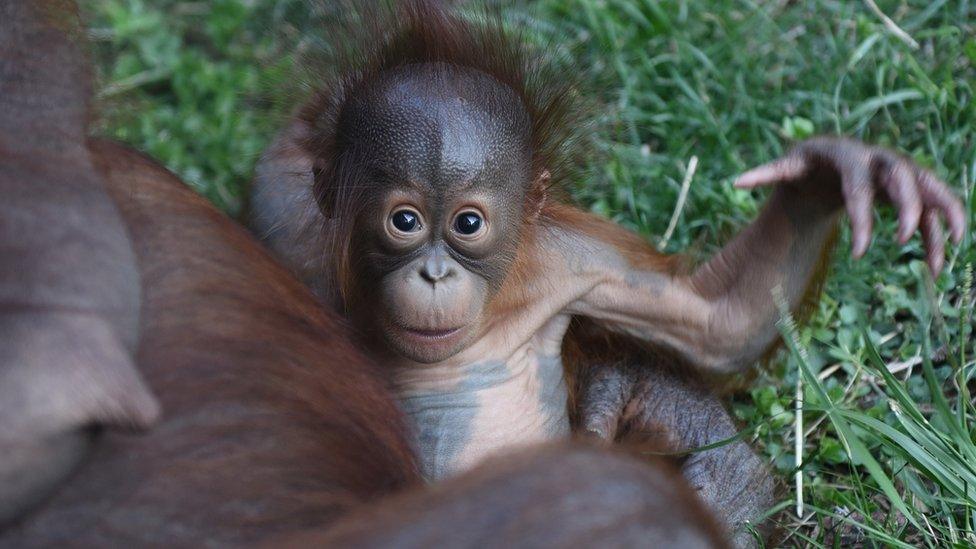
A particularly cute orangutan
There's some good news about the survival rates of orangutans in protected forests on the Malaysian island of Borneo.
Numbers have stabilised over the last 15 years, according to a new study by the World Wide Fund for Nature (WWF).
But the number of orangutans in areas of forest where palm oil is farmed have fallen in the same period.
As a result, WWF is warning that the manufacturing of palm oil can have a devastating effect on the animals.
Why the use of palm oil is so controversial
The study - which the WWF says is the biggest ever done on any great ape in the world- shows that efforts to help endangered orangutans survive seem to be paying off.
Huge patches of forest in the country are now protected, and around 70% of the region's orangutan population now live in those reserves.
In two areas of the country where forest management has been introduced numbers increased from 5,376 to 5,933 during the last 15 years.
But it's not good news in all parts of the island.
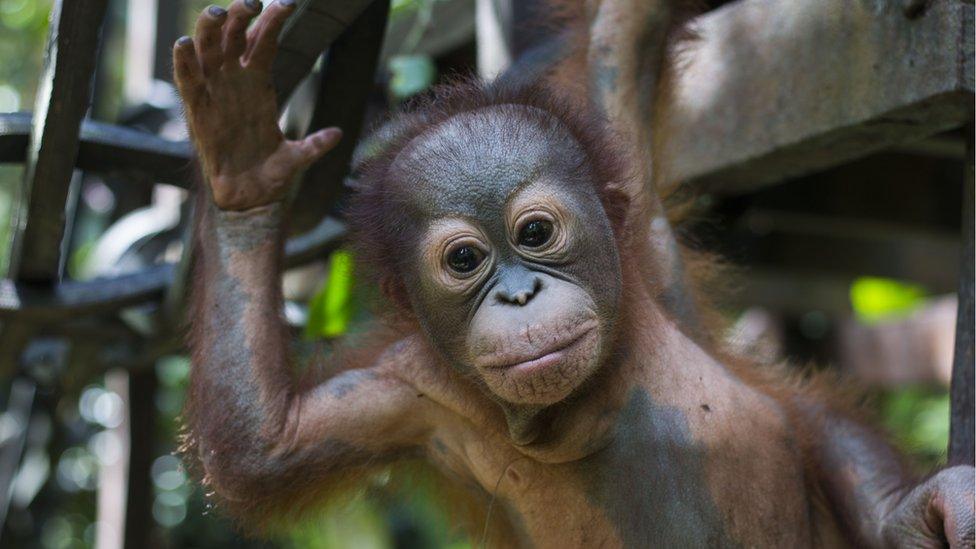
This adorable baby oragutan is learning to climb
"While the orangutan population has stabilised in large forest areas, their numbers declined in forest patches within oil palm landscapes," WWF said.
Those areas of forest are no longer big enough to support species like orangutans.
Often that's because massive areas of the land have been chopped down to make palm oil.
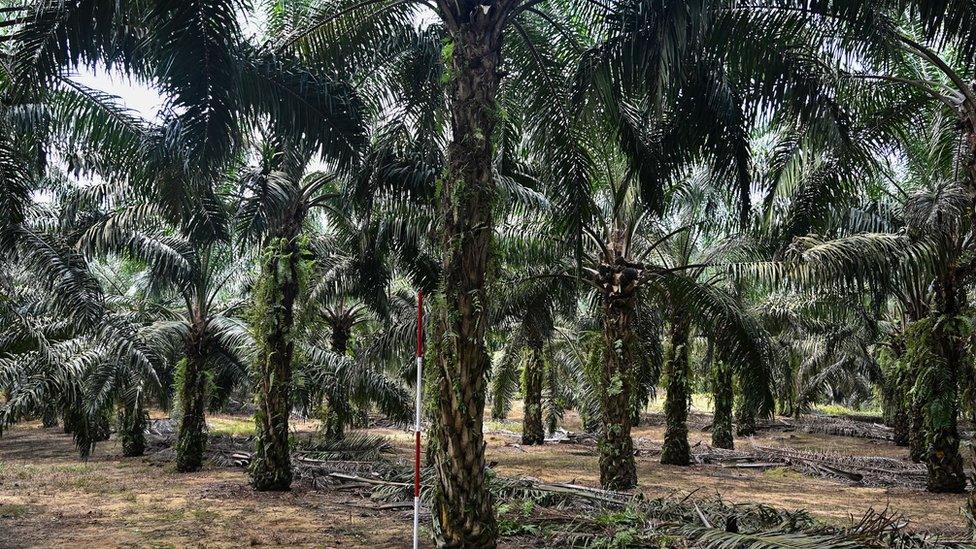
Orangutan numbers have fallen in areas where palm oil is farmed
Malaysia is one of the world's biggest producers of palm oil, which is used in everything from chocolate spread to lipstick.
It's a substance worth billions of dollars and hundreds of thousands of jobs. It's the south east Asian country's largest agricultural crop and export.
Making it has resulted in huge deforestation over the years as land is cleared - often by heavily polluting the area, slashing the trees or burning them.
If orangutans are going to survive, it's essential that forest areas are preserved for them to live in.
Is all palm oil bad?
Palm oil is in lipstick, pizza dough, shampoo, ice cream - it's hard to avoid.
But WWF recommends looking for products that are certified by the Roundtable of Sustainable Palm Oil, or RSPO.
It helps companies make sure they're using palm oil that hasn't been farmed through deforestation.


Follow Newsbeat on Instagram, external, Facebook, external, Twitter, external and YouTube, external.
Listen to Newsbeat live at 12:45 and 17:45 weekdays - or listen back here.
- Published26 June 2018
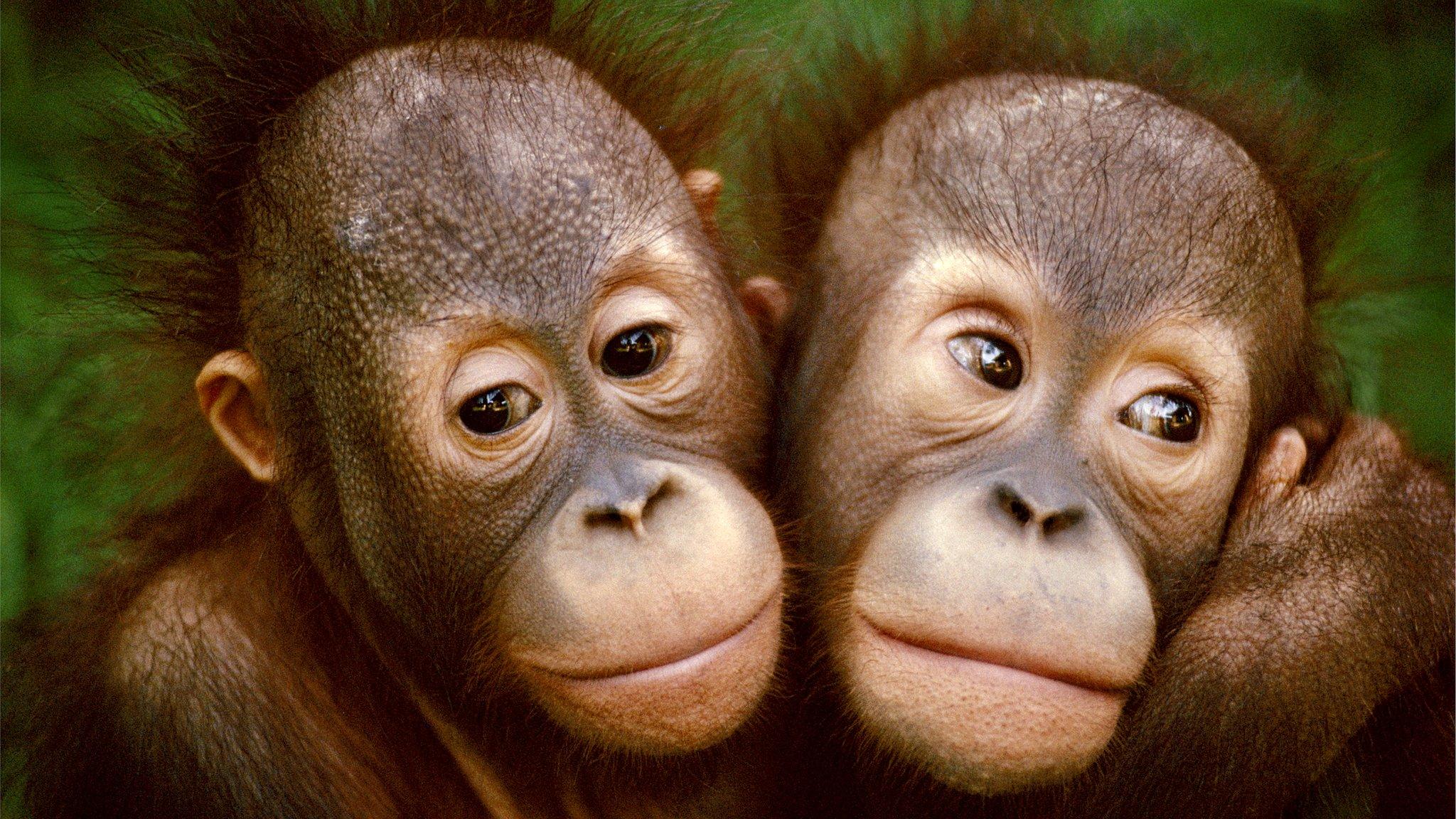
- Published12 February 2019
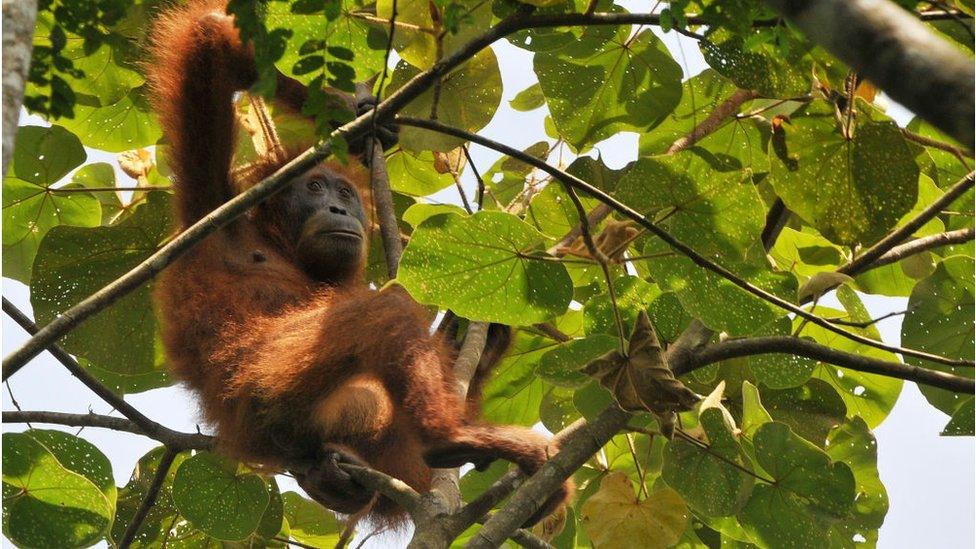
- Published15 July 2019
